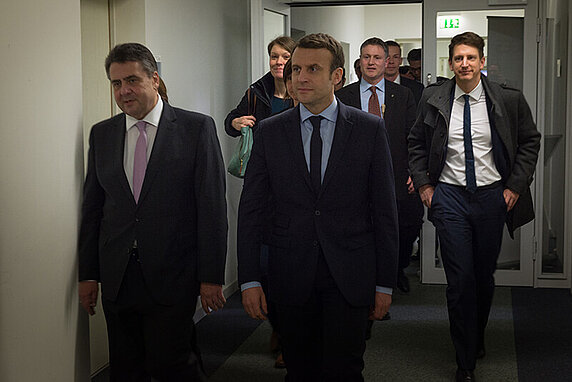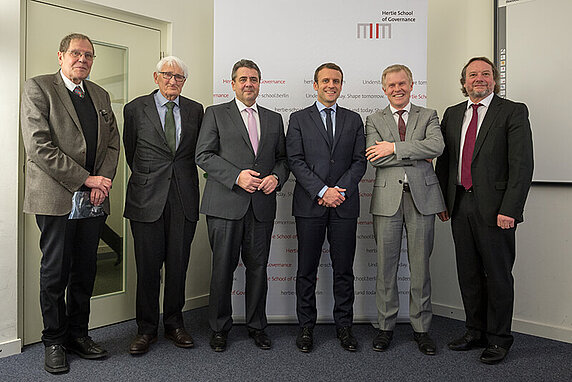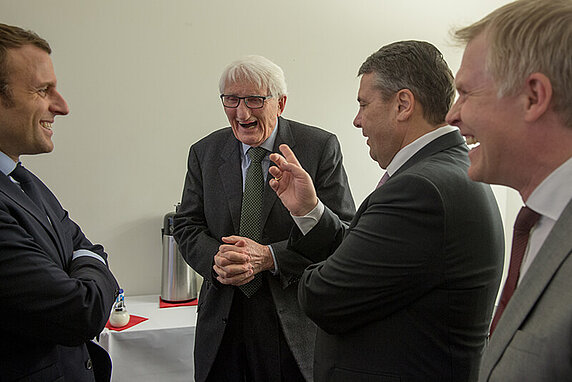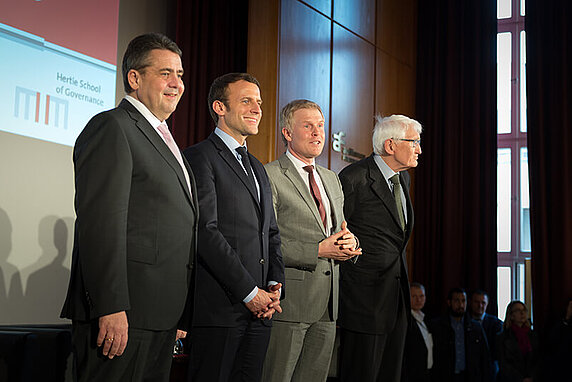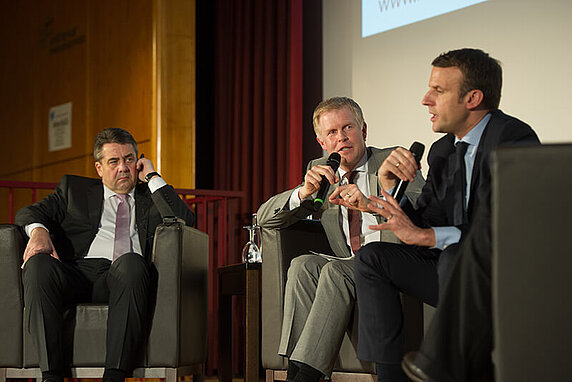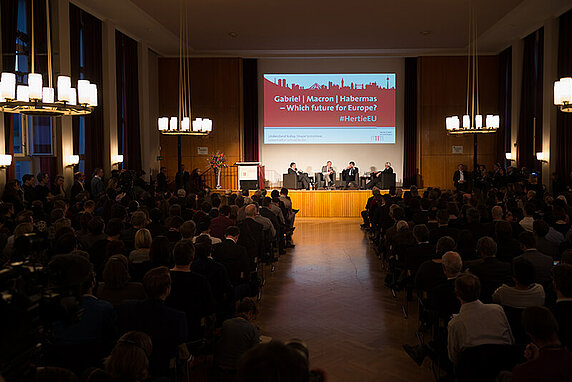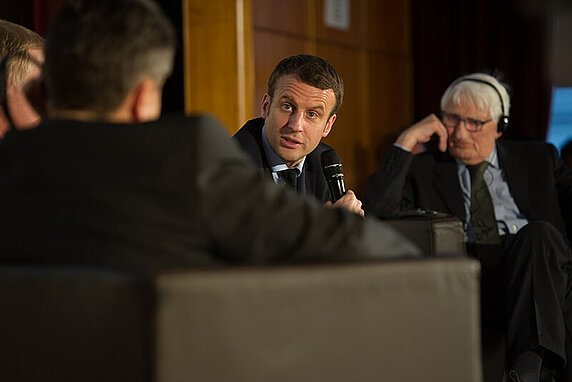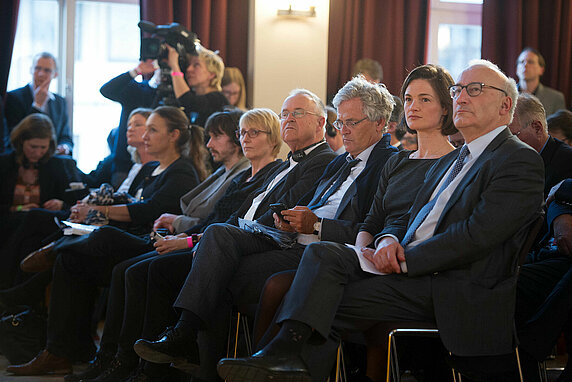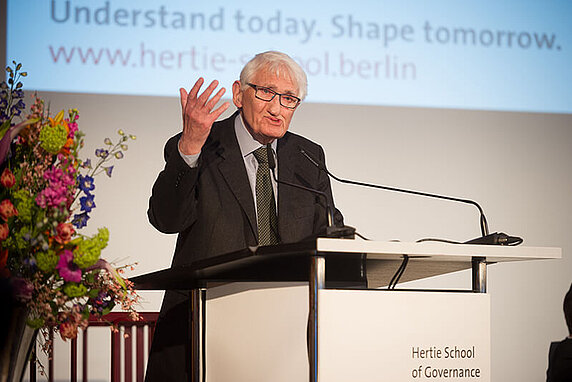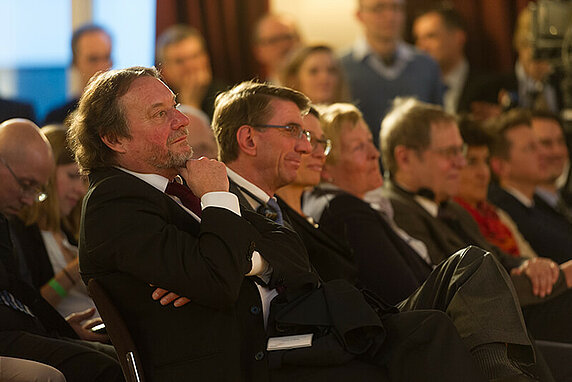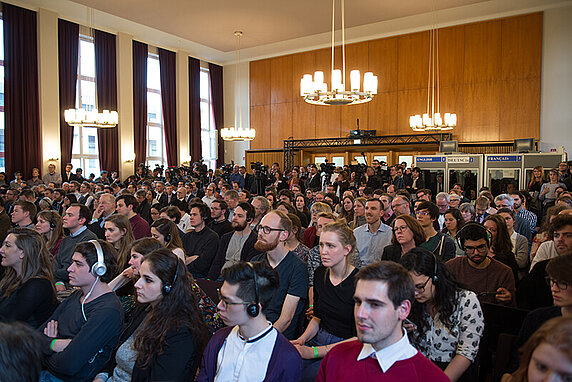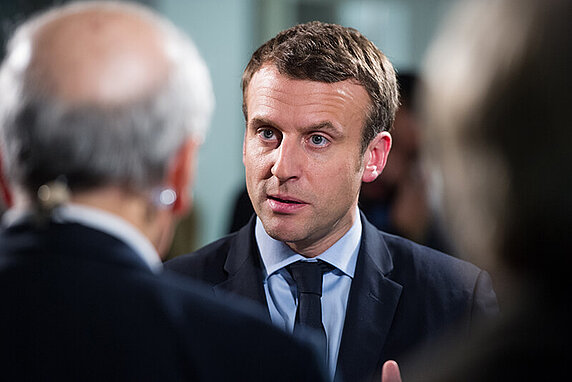Video of this event is also available in the original languages here.
A full transcript of this event, provided by the Blätter für deutsche und internationale Politik, is now available (in German) here.
A transcript of Jürgen Habermas' remarks is also available (in English) here.
Around 600 people crowded into two auditoriums at the Hertie School on 16 March for a discussion between German philosopher Jürgen Habermas, French Presidential candidate Emmanuel Macron and German Foreign Minister and social democrat Sigmar Gabriel. President of the Hertie School Helmut Anheier opened the evening, and Vice President Henrik Enderlein moderated the lively discussion.
Addressing the question, “Which future for Europe?", Habermas delivered a keynote speech calling on political elites to have faith in fostering public debate. “The national populations will be able to recognise and decide what is in their own respective interest in the long run only when discussion of the momentous alternatives is no longer confined to academic journals – e.g. the alternatives of dismantling the euro or of returning to a currency system with restricted margins of fluctuation, or of opting for closer cooperation after all,” he said.
The event took place just one day after Dutch voters re-elected centre-right Prime Minister Mark Rutte, rejecting the anti-Europe populist candidate Geert Wilders in a vote that was seen as a barometer for the upcoming French and German elections in May and September, respectively.
Introducing France’s pro-Europe, left-wing En Marche! candidate Macron, Habermas said: “Emmanuel Macron personifies the antithesis to the quietism of those authorised to act,” and reminded Gabriel and Macron of their ambition to make economic policy in Europe more "flexible" when they served as their countries' economics ministers. He went on to criticise the widening economic gap in the euro zone as a result of austerity, saying that “opposing narratives” in North and South have “promoted mutual aggressions and a deep split running through the euro zone.”
Macron and Gabriel pledged to reinvigorate the Franco-German relationship as the traditional motor of Europe. This new “European momentum,” Macron said, would come through a “New Deal” that focused on investment and reform, allowing Europe to stand together and face current challenges. “The European movement must come from Germany and France,” said Macron. “If you are a timid European, you are a European who has already lost the battle.”
Habermas warned against retreating behind borders amid the current tide of nationalist sentiment reflected in the current US administration, the Brexit campaign and populist political movements in Europe. “We must expand the spaces for possible democratic will-formation, for political action, and for legal regulation,” he said.
It is not too late to act, he urged, but time is running short. “It will become more difficult to effect such a shift the longer the unresolved crises foster right-wing populism and left-wing dissidence as regards Europe,” Habermas said. “Without an attractive and credible perspective for shaping Europe, authoritarian nationalism in member states such as Hungary and Poland will also be strengthened. And unless we take a clear line, the offer of bilateral trade agreements with the United States and – in the course of Brexit – with the UK will drive the European countries even farther apart.”
Turning to Germany, Habermas said that, “The blessing of being the greatest beneficiary of the European Union is also a curse. For, from a historical perspective, a possible failure of the European project would be attributed with good reason to German indecision.”
Media coverage of the event:

